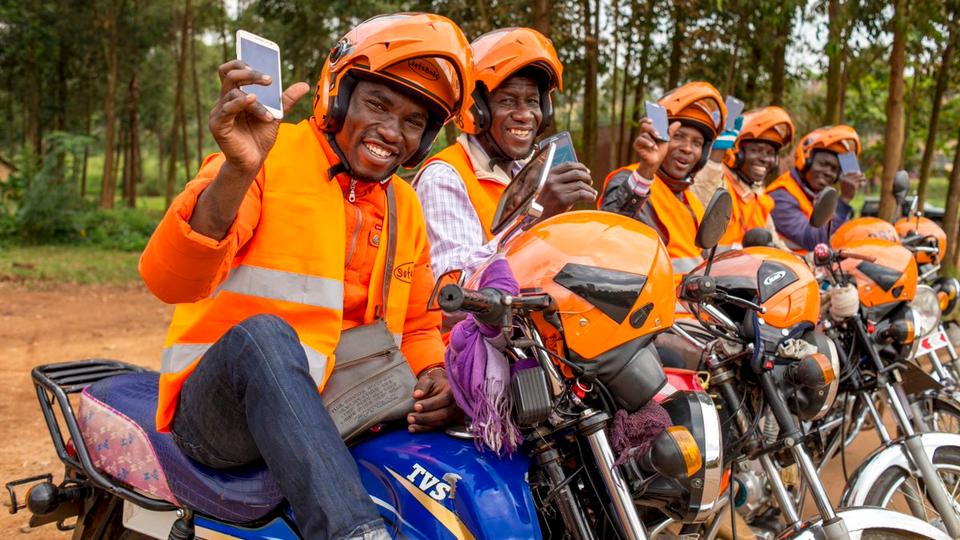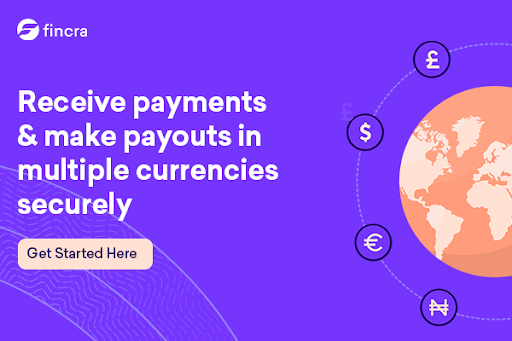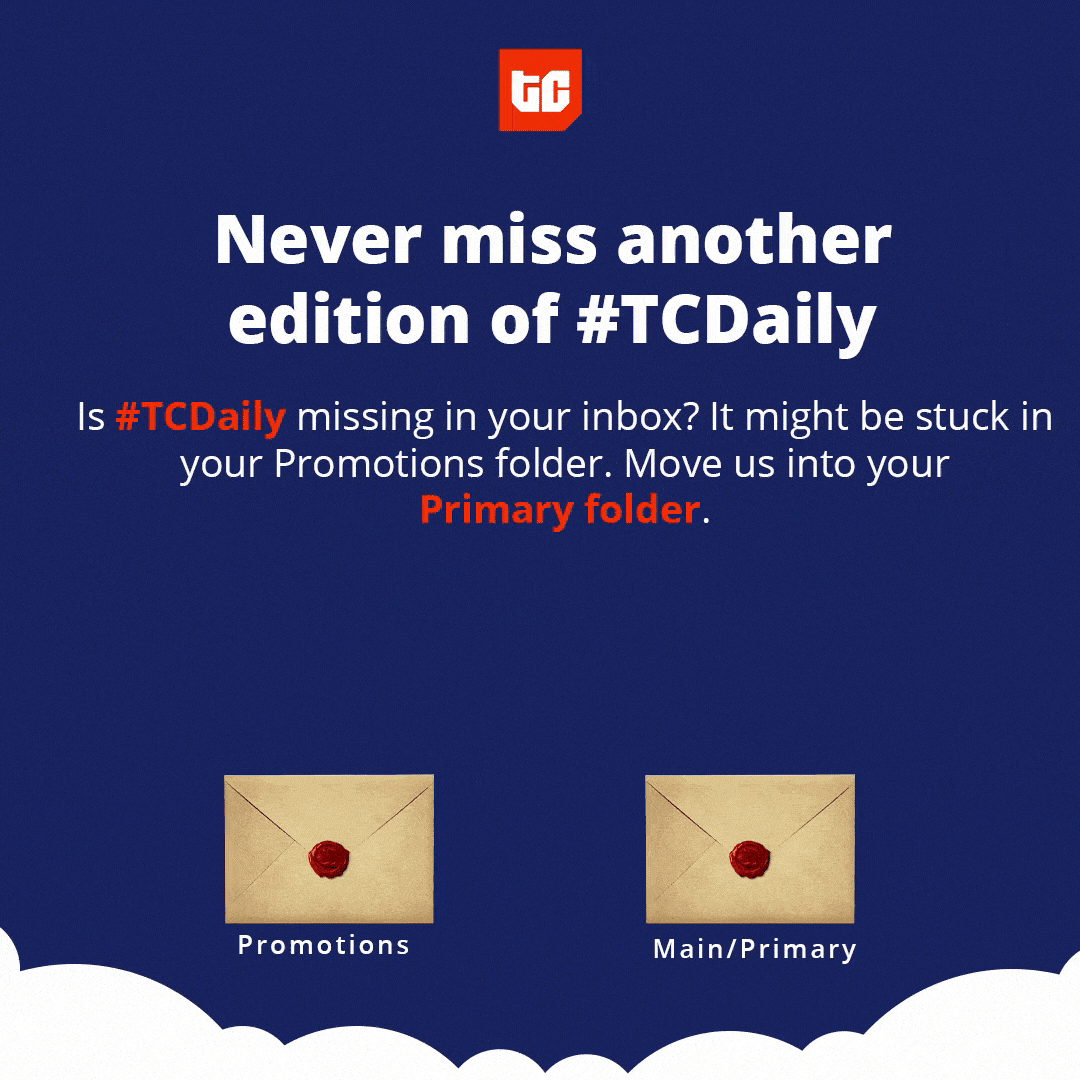
IN PARTNERSHIP WITH

It’s still the second week of February. 😭
Congratulations to our readers in Senegal.
They got to spend their Monday celebrating after President Macky Sall declared Monday a public holiday in celebration of Senegal’s victory at the African Cup of Nations (AFCON) football contest.
Although Senegal’s position in the global jollof foodball war is yet to be decided, the francophone country gained its first-ever victory at the football competition in which 24 African countries participated.
Felicitations! 🥳

Image Source: BBC
In today’s edition
- Super SafeBoda
- Meta is putting some distance between people
- How to build in uncharted territories
- Jiji acquires Tonaton
- Opportunities
SUPER SAFEBODA

Uganda’s SafeBoda is morphing into a super app.
Side-bar: Super apps start with a single service (also called a core asset), then they add other services or let third-party companies add mini apps at a low marginal cost, in order to make themselves a part of users’ lifestyle. Basically, they’re apps that intersect with numerous sectors of their users’ lives. Examples in Africa are OPay, and M-Pesa.
So what’s super about SafeBoda?
Remember last year when Google announced the Google Africa Investment Fund to infuse $50 million investment into African startups? Well, SafeBoda was the first recipient of the Fund, and it’s using its investment to upgrade its offerings.
Now users of the ride-hailing app can send money to other users on the app and withdraw money in cash from their nearest agents. They can also save on the app and get 10% annual interest on savings in their SafeBoda wallet.
SafeBoda launched in Uganda to connect riders to motorcyclists. Since its launch, it has expanded to Nigeria and Kenya—although it exited Kenya in 2020 due to COVID complications.
Its new update also allows users to buy airtime from MTN and Airtel and earn 10% cashback while at it. That means if you buy airtime worth 1,000UGX, you get 100UGX back.
SafeBoda also partnered with outlets and service providers to allow users pay for utilities like DSTV, order food from restaurants, and for Ugandan residents, get packages delivered with Posta Uganda.
Big picture: As Sultan said in this Next Wave edition on super apps in Africa, “Super apps are important to financial inclusion and digital adoption as it makes it easier for people with low to medium digital literacy to navigate the complex digital ecosystem.”
META IS PUTTING SOME DISTANCE BETWEEN PEOPLE
Other than its fervent push into the metaverse, Facebook’s parent company, Meta, is putting some distance between people.
Last week, it announced that avatars—virtual manifestations of users on the metaverse—in Horizon would now have inexorable 2-foot personal boundaries.
Basically, all avatars on Meta’s Horizons will come with 2-foot transparent boundaries that no one else can enter. And no one, not even the users can shut off.

Image source: The Verge
Is COVID in the metaverse too?
The metaverse will have its fair share of viruses, but Corona isn’t one of them.
Meta is instituting the boundaries to prevent harassment in the metaverse.
How prominent is harassment in VR?
It happens much more than we think, and it’s been going on for a while. It also ranges from sending sexually suggestive messages in chatrooms, to groping and stalking in virtual workspaces and games.
In 2016, this woman fell victim when another player rubbed his hands repeatedly on her chest and crotch during gameplay.
Meta’s own action against harassment comes a month after a beta tester for Horizon reported that she was groped in the metaverse by a complete stranger.
If you’re thinking, but they’re not really touching since it’s the metaverse, here’s what Dr Avinash D’Souza, the President of the Bombay Psychiatric Society, has to say about harassment in VR: “This (incident of groping in virtual reality) is another form of sexual harassment because the virtual avatar that is hanging out is an extension of the user. The avatar is practically and technically the user hanging out there in virtual reality, in whatever animation or avatar of theirs. If somebody is trying to grope you or trying to touch you inappropriately in virtual reality—then it is indirectly being directed at you.”
Big picture: Meta is not the only VR company that has measures to prevent harassment. Some spaces like VR Chat and Rec Room also have personal bubbles, although users can change the sizes of the bubbles or turn them off.
Send and receive Naira, Cedis, Rand, Shilling, USD, Euros and other currencies directly to your mobile wallet, bank account, Barter wallet or through cash pickup with $end.
Visit send.flutterwave.com and do it now!
This is partner content.
HOW TO BUILD IN UNCHARTED TERRITORIES?

Speaking of VR, on the continent, there’s not as much being done in sectors that deal with virtual reality compared to other sectors like fintech or e-commerce.
Building a successful business in unpopular sectors is difficult globally, and building for Africa, even moreso. In such sectors, there are almost no supporting communities and infrastructure to leverage for growth. So, founders interested in such sectors often have to build from scratch.
Even with this difficulty, there are some founders pushing through and tackling uncharted territories. Now the question is, how?
Two weeks ago, TechCabal held a Building from Ground Up event to answer this question. We invited Judith Okonkwo, founder of Imisi3D—an Extended Reality (XR) creation lab in Africa—to share her experiences with us.
Here are the highlights from our conversation:
- The early days are usually lonely and filled with trial and error in product iterations and product-market fit.
- Having in-depth knowledge about a business will make the building less strenuous. If you don’t know much about the territory, the best thing to do is to put yourself out there to seek real-life knowledge on how your solution would solve real-life problems.
- Then leverage your network for support. Remember the territory is unpopular with almost no existing infrastructural support, so your best chance at success lies with people.
- Set a clear goal. For Okonkwo, the vision was clear: an impact-driven venture that would create an advanced and thriving XR ecosystem across Africa, starting from Nigeria.
Quidax is one of Africa’s largest cryptocurrency exchanges that allows anyone to access Bitcoin and other cryptocurrencies from anywhere in the world. With the new Quidax app, anyone can trade over 30+ cryptocurrencies, get market reports, easily withdraw funds in your local currency, and do so much more.
Download the new Quidax app today!
This is partner content.
JIJI ACQUIRES TONATON

“In terms of classifieds, we’re looking at opportunities, but we are already a leader in Africa, so I think there’s very limited space for whom to acquire.”
Last June, Vladimir Mnogoletniy, Jiji’s co-founder said this when his company acquired Cars45, Nigeria’s leading automotive trading platform. This was two years after it acquired its biggest competitor, OLX, a Naspers-backed company for an undisclosed amount.
Growth by acquisition
Well, it took less than a year for Jiji to make another acquisition, this time it turned to Ghana acquiring its primary competitor, Tonaton, for an undisclosed amount. A move that hints that Jiji might have found its winning growth formula: acquiring its competitors.
Jiji is already one of the most-used e-commerce apps in Nigeria, Ghana, Kenya, Uganda and Tanzania with 12 million monthly active users across Africa. Jiji claims it’s the largest e-commerce company in Africa by Gross merchandise value (GMV)—more than $10 billion—with OLX, Cars45 and now Tonaton under its umbrella.
Zoom out: Adopting a growth-by-acquisition strategy has proven to be a faster and more effective route for Jiji, rather than expanding via setting up new offices around Africa, as it reduces its exposure to the cumbersome regulatory landscape of African countries.
Fincra is a payment infrastructure that provides fintechs, online platforms, and global businesses with reliable payment solutions for quick collections and payouts in different currencies. You can gain access to Fincra’s payments platform or integrate their APIs for seamless payments processing.
This is partner content.
OPPORTUNITIES
- The Netherlands Trust Fund V (NTF V) is now open to applications from IT and agritech startups in Ethiopia, Ghana and Uganda. Selected startups will get training and coaching, participation in IT-related B2B matchmaking events and other benefits. Find out more here.
- The AllOn/NCIC Embryo Incubation Programme is now open to applications from early-stage Nigerian startups in the renewable energy sector. Eight selected startups will get $10,000 equity-free grants each. Charge up your applications here.
- The Bayer Foundation Women Empowerment Award is now open to applications from female entrepreneurs in sub-Saharan Africa who are driving positive change by bringing better health and nutrition to everyone. The Awardee will receive €25,000 ($28,000) for their work. Check it out.
What else we’re reading
- The Next Wave: Who will win Africa’s music streaming wars?
- Women and e-commerce: Capturing the $14 billion opportunity in Africa.
- Africa’s female gig workers are battling beliefs about what real work is .
- Nigeria’s Reliance Health raises $40 million Series B funding round.





























